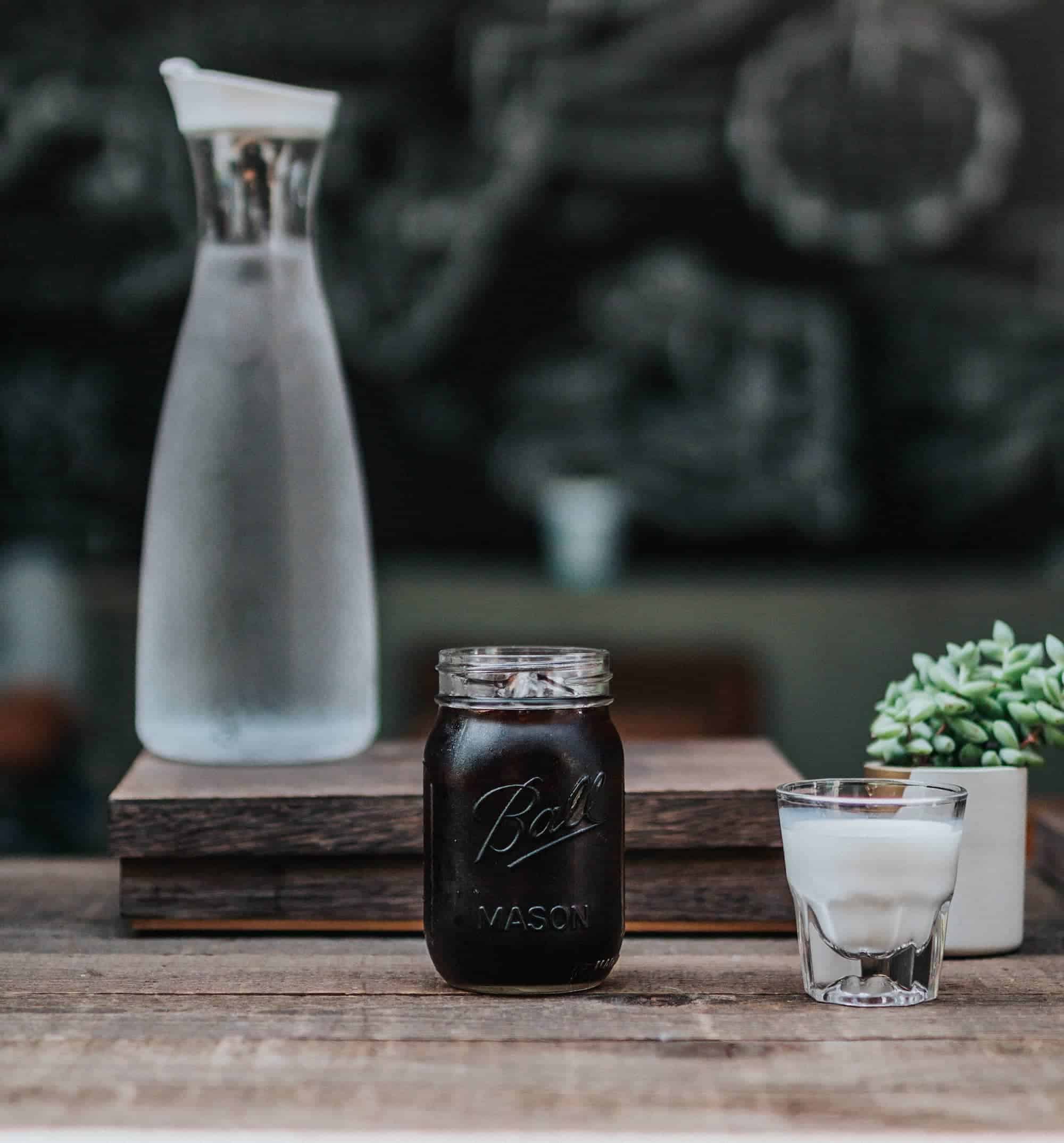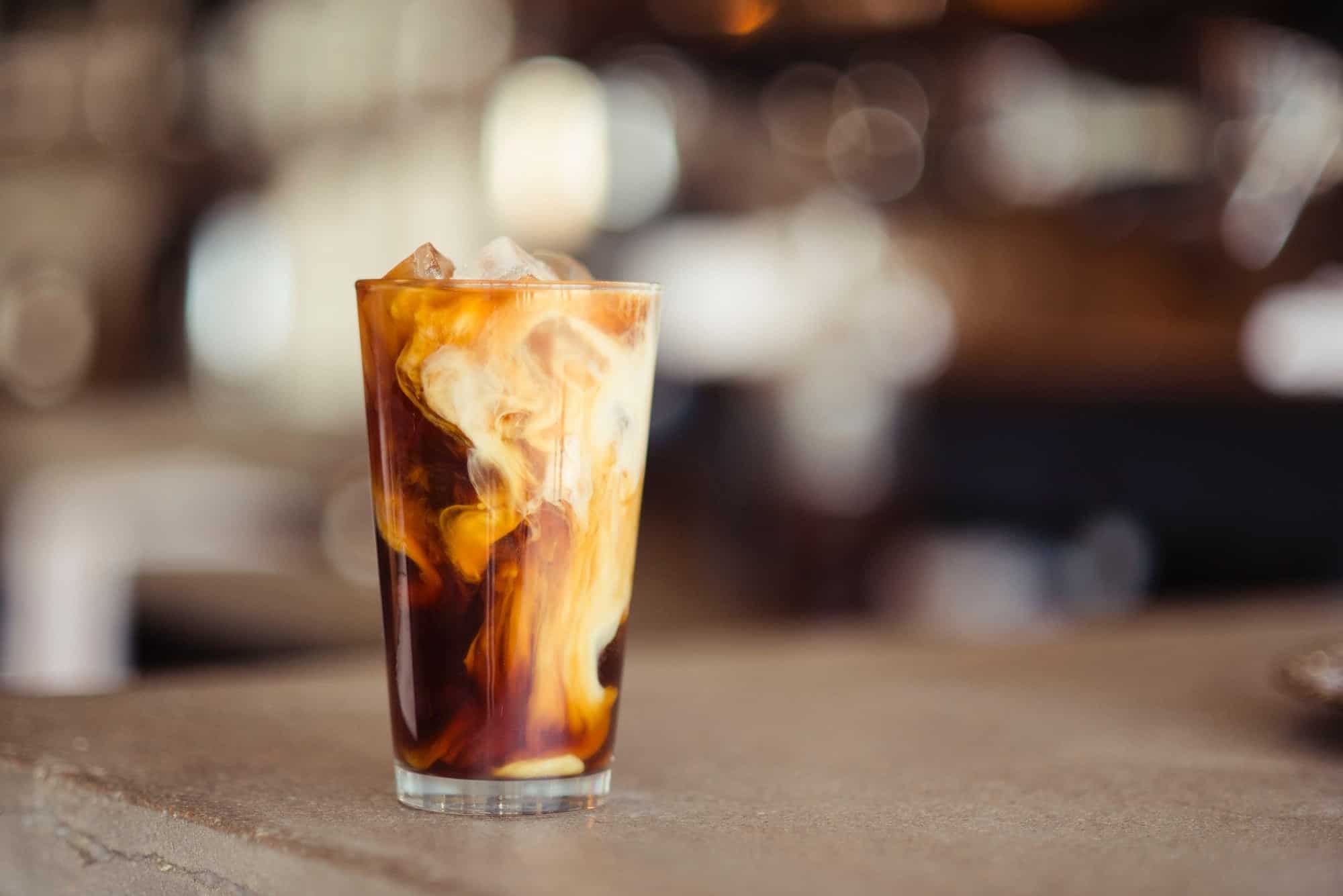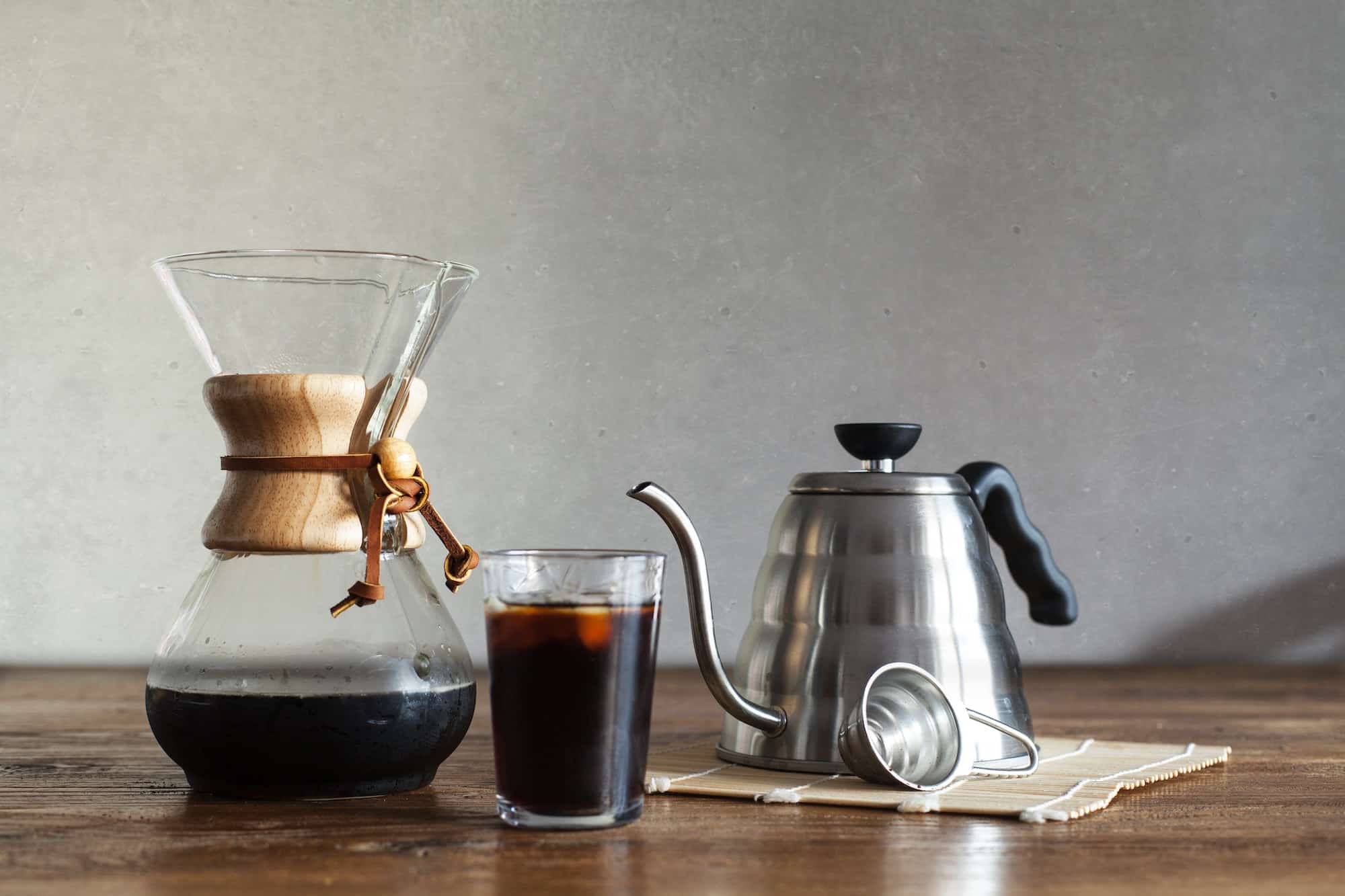Cold Brew vs Iced Coffee – Which One to Choose?
You might have noticed that the cold brew coffee craze has taken the country by storm over the past few years. But what exactly is cold brew and how does it differ from plain old iced coffee?
We take a look at the main differences and explore how each is made to hopefully answer all your questions…
What are the main differences between cold brew and iced coffee?
Cold Brew
Iced Coffee
In brief…Cold Brew
While regular hot coffee is brewed with water just off boiling-point, cold brew is made by introducing coffee grounds to cold or room temperature water and letting them steep for up to 48 hours to extract maximum flavor.
In brief…Iced Coffee
Iced coffee is quite simply cooled coffee. Common ways to make iced coffee include brewing a batch of regular coffee and letting it cool, or brewing hot coffee over ice. The brew time is much quicker but the results can be mixed.
The full story
Time and Temperature
Cold brew is brewed using water at room temperature or below. This would put the water temperature at a maximum of 68 to 72F (20 to 22C). As a result, it takes much longer to reach optimal extraction, with brew time typically between 12 and 48 hours.
Iced coffee is brewed hot and then chilled. This means that it takes just a few minutes to brew. The best temperature for optimal extraction is around 195 and 205F (91 to 96C) before the brewed coffee is cooled.
Caffeine
The jury is out with regard caffeine content of cold brew. Some argue that the greater ratio of coffee to water means the caffeine content is higher. Remember though that the cold brew method produces a concentrate that is usually further diluted.
Flavor
Good iced coffee will retain the flavor extracted during the hot brewing process, as long as the iced coffee is not left too long to oxidize. Cold brew is more of an acquired taste. The nature of extraction can mute the flavors inherent in the bean, which means the coffee can lose its complexity.
However, a quality cold brew made with first-rate beans can still offer up a full-flavored coffee experience. Given its sweetness, lightness and mild flavor, cold brew can take some getting used to, but the market is now full of different varieties to try. If you want to make cold brew at home, you can experiment to find what works best.
There’s lots of science that goes into a cup of coffee, with different brewing methods and temperatures influencing the flavor and acid level of the finished cup. The main thing to note is that at colder temperatures, less flavor is extracted and less acid is released. This is why a) brew times are much longer for cold brew and b) cold brew is known for being smoother and milder than regular coffee.
Beans
When it comes to choosing coffee beans for iced coffee and cold brew, there is unsurprisingly no straightforward answer. With cold brew, the important thing is to realize is that it is a completely different animal to iced or hot coffee.
The cold brew process can flatten out the flavor of the beans, so some people argue that robust darker roasts are best. However, others argue that lighter roasts are preferable as darker roasts can lead to a cold brew that tastes like charcoal.
It really comes down to personal preference and exploring different options to find what you like best. For iced coffee, it’s important the beans are fresh, whereas good cold brew can be made using beans that are a couple of weeks old.
Best Brew Methods
Chemex is an excellent method to make Iced Coffee
There are lots of different ways to make cold brew, but they all involve immersion. The simplest way is to introduce coffee grounds to water and leave to steep. Some argue that a hot water stage (or hot bloom process) is necessary to extract the full flavor of the coffee.
If you plan to make cold brew at home, a French press is a good option. Use coarse ground coffee and aim for a 4:1 water/coffee ratio. Make sure oxygen exposure is minimized. Leave for at least 12 hours and then filter out the grounds. The result is a coffee concentrate which can be diluted down with water, or poured over ice.
As noted above, iced coffee is brewed hot and then chilled. This means the best temperature for optimal extraction is around 195 and 205F (91 to 96C) before the brewed coffee is cooled.
There are mixed views on which is the best way to cool the coffee, with many believing the ‘brew over ice’ method produces the best results.
This is largely because the coffee is good to drink immediately, as opposed to sitting around cooling for a period of time, which can cause oxidization and impair the flavor. If you want to make iced coffee at home, a Chemex, V60 or Aeropress with ice at the bottom can produce particularly good results.
While pour-over is best, you could also try a French press or stovetop coffee maker, with the brewed coffee poured over ice. Given the risk of over-dilution, use more coffee grounds than normal. Grind size depends on brew method, but medium to coarse is best.
Water
The quality of the water used to make any kind of coffee is an important part of the brewing process. This is no less the case when making iced coffee or cold brew.
When it comes to making cold brew, the coffee beans and water initially sit together for a long time and the resulting brew is far subtler in flavor, meaning the quality of the water is a key part of the overall drinking experience.
Likewise, with iced coffee, the hot coffee needs to be of excellent quality in order for the chilled version to have a chance of retaining a good flavor. If you’re brewing at home, always use fresh water and consider using filtered or bottled water (for your ice cubes too).
So, which is best?
The answer to that really depends on how you like your coffee. If you prefer a more refined chilled coffee experience, a good cold brew can offer all the complexity of specialty coffee without any of the bitterness of iced coffee.
However, if you like your cold coffee to taste like a cooled down version of hot coffee, a good iced coffee can really hit the spot. Since the rise of cold brew, iced coffee has been getting a bad rap, but it can still be an enjoyable beverage, especially for those who find cold brew too mild or sweet.


